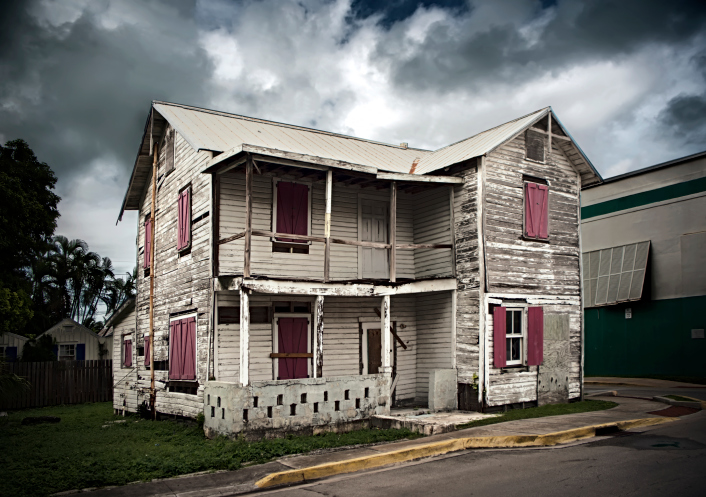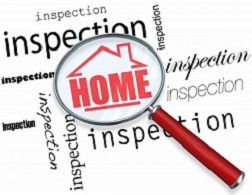 When you buy a home, you may have dreams of settling into a beautiful new space that meets your needs and that your family can feel comfortable in. While many will enjoy this vision of domestic tranquility after taking ownership of their dream home, others have had their dream turn into a veritable nightmare due to some simple mistakes or oversights on their part. By understanding these mistakes, you can avoid making them yourself.
When you buy a home, you may have dreams of settling into a beautiful new space that meets your needs and that your family can feel comfortable in. While many will enjoy this vision of domestic tranquility after taking ownership of their dream home, others have had their dream turn into a veritable nightmare due to some simple mistakes or oversights on their part. By understanding these mistakes, you can avoid making them yourself.
Paying Too Much For The Property
One the surface, the main cost of buying a home relates to the sales price, and it is true that your monthly housing payment may be the primary related expense. However, other expenses such as homeowners insurance, property taxes, repair and maintenance costs, utilities and more will all need to be factored into the cost of home ownership. Some buyers believe that because an online calculator or a lending professional tells them that they can afford a high priced home that it is the case. You can review your budget and estimate all related home expenses to determine how affordable a specific property is for you.
Finding Out That The Location Is Undesirable
There are many things that can make a location undesirable, and you should take time to become comfortable with the location before making an offer. Consider, for example, if the neighbors like to throw loud parties on the weekend or if there is a teen driver that likes to speed down the street. If you are buying a property with open land or vacant buildings around it, consider researching zoning, and think about future uses for these properties that could influence value and desire.
Discovering That Your Property Is In Bad Condition
Some home buyers discover after purchasing a property that it is not in the best condition, and some even learn that their home needs tens of thousands of dollars of repair work or more. Even properties that appear to be in great condition on the surface may have hidden issues with the foundation, structure, roof, pipes or electrical work, to name a few. You can order a property inspection to learn more about the true condition of a property.
These are among the most common issues that can turn a dream home into a nightmare. When you work with a local real estate agent when buying a home, your agent can help you to avoid unpleasant and costly mistakes such as these.
 Whether you are preparing to purchase your first home or it has been many years since you last walked through the home buying process, you may be starting to feel overwhelmed at the thought of all of the work that lies in front of you. From concerns about finding the right home to the physical act of relocating all of your belongings after the closing, there is certainly a lot to think about. While each home buying transaction is unique, the most successful home buyers have typically adopted a few behaviors. You may keep these in mind to help you navigate through the process with success.
Whether you are preparing to purchase your first home or it has been many years since you last walked through the home buying process, you may be starting to feel overwhelmed at the thought of all of the work that lies in front of you. From concerns about finding the right home to the physical act of relocating all of your belongings after the closing, there is certainly a lot to think about. While each home buying transaction is unique, the most successful home buyers have typically adopted a few behaviors. You may keep these in mind to help you navigate through the process with success. There are few things that can be more stressful than buying or selling a home. When you are buying and selling a home at the same time, your stress level may understandably skyrocket through the roof. There may be financial aspects of both transactions that may be cause you stress, and you may be dealing with logistical issues or simply feel stressed by the stacks of documents piling up for both transactions. While this will inevitably be a challenging time in your life, you can more easily navigate through the transactions with success by following a few tips.
There are few things that can be more stressful than buying or selling a home. When you are buying and selling a home at the same time, your stress level may understandably skyrocket through the roof. There may be financial aspects of both transactions that may be cause you stress, and you may be dealing with logistical issues or simply feel stressed by the stacks of documents piling up for both transactions. While this will inevitably be a challenging time in your life, you can more easily navigate through the transactions with success by following a few tips. Relocating to a new area can be exciting, but it can also be expensive. There are many resources to help, but most cost money. However, if you take your time and plan carefully, you can reduce the expense so you don’t start your new life with new debt. Here are three tips to controlling your moving budget.
Relocating to a new area can be exciting, but it can also be expensive. There are many resources to help, but most cost money. However, if you take your time and plan carefully, you can reduce the expense so you don’t start your new life with new debt. Here are three tips to controlling your moving budget. Home inspections are a tense time for everyone. Sellers are passionately hoping that nothing major is wrong with their home that could hold up the transaction.
Home inspections are a tense time for everyone. Sellers are passionately hoping that nothing major is wrong with their home that could hold up the transaction. Finding a proper mortgage loan and understanding the processing procedures behind the loan is the basis of good research. The down payment on a mortgage loan is typically significant when dealing with mortgage insurance.
Finding a proper mortgage loan and understanding the processing procedures behind the loan is the basis of good research. The down payment on a mortgage loan is typically significant when dealing with mortgage insurance.